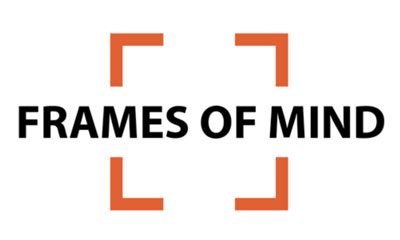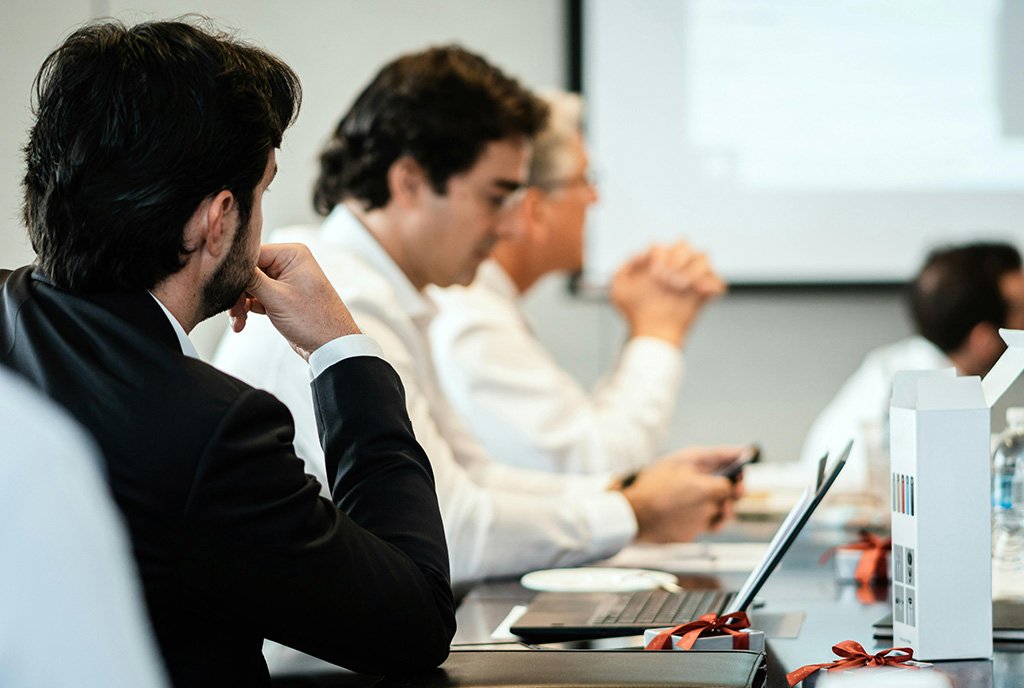
I took a few weeks off at the beach this year to catch the last of the sunshine. I walked and swam and drank good California wine. Every Friday at dawn, I grabbed a thermos of coffee and a beach towel and pedaled my beach cruiser down the boardwalk to 4th Street to watch my son’s volleyball class. His instructor, Steve, is a conceptual and strategic coach. He explains how to move around the court, anticipate the opposition’s ball placement from the server’s body language, and loom large at the net.
Watching these early morning games against a backdrop of jumping dolphins, diving pelicans, and longboarders, I had just about forgotten my day job, as well as most pressing social issues. Then one morning, Steve’s voice broke my bubble. He was yelling at my son: “Andy, you are framing too late!”
My summer vacation ended in that moment, as I began to follow the mental trail back to FrameWorks and the myriad examples of framing too late.
In volleyball, framing refers to using one’s hands to locate the ball in order to assess its trajectory and thus, the opposition’s strategy and your defensive posture. It would be easy to dumb down Steve’s admonition as merely one of timing: get your hands up sooner. But that’s not what he meant. He meant that Andy was trying to play a game that had already moved on; he was arriving too late, mentally, to select the right moves.
I was dumfounded, as if the volleyball had landed on my head. In advocacy, framing refers to using communications to position the issue, reduce misunderstanding and opposition, broaden constituencies, and boost support. Framing too late means you are forced to act precipitously, on too little information, forgoing a strategic approach.
It’s a Heraclitan observation. The stream is already flowing by the time you place your foot in it; but, when you do, you change the stream. That point of entry, that intervention, needs to anticipate everything that has come before and take responsibility for everything that comes after.
Framing works just like that. And framing too late is one of the most common problems we see when reviewing advocacy strategies.
Flying home, I thought about four issue areas where FrameWorks colleagues have observed “frames in progress” that have seeped unexamined and perhaps uncontested into advocacy thinking and practice. I could suggest a dozen more, so common is this practice of waiting for the right time to frame.
Aging. Sometimes the frames are embedded in the visuals. It takes a keen eye to question the naturalism of those images. When FrameWorks began to research how Americans perceive aging, we repaired to the universe of stock imagery to illustrate our reports and presentations. What we had to work with were: people with canes (aging=disability), people with grey hair (aging=ugly) or people just like you and me (an anti-aging appeal). It’s easy to see how this happened: depicting a developmental process as a static image is not easy, so we fall for the easy solution of physical characteristics. Those images were the natural outgrowth of the common terms that advocates use to describe aging. They were universally otherizing: the elderly, seniors, the aged. These words defined a group of people as isolated from others who, inevitably, will follow in their footsteps; this vocabulary obscured common ground and community.
Advocates took their case to the media that defines their issue—with great results. Using FrameWorks’ research on aging and noting that “language matters,” the Journal of the American Geriatrics Society announced a new style guide that changes policies about how to refer to older adults. Guidelines include avoiding crisis language, like the aging “tsunami,” and instead talking affirmatively about changing demographics, and using neutral and inclusive terminology, such as “older people” instead of the elderly and “we” and “us” instead of “them” and “they.” Other major geriatric journals have followed suit—and a leading beauty magazine published a powerful essay about why editors will phase out the term anti-aging. The lesson here is that framing early means examining everything you have inherited when you step into the stream of conversation, the illustrations as well as the core definitions.
Sign up for our free newsletters
Subscribe to NPQ's newsletters to have our top stories delivered directly to your inbox.
By signing up, you agree to our privacy policy and terms of use, and to receive messages from NPQ and our partners.
Early Child Development. I revert often to lessons learned from FrameWorks’ long collaboration with the National Scientific Council on the Developing Child and the Center for the Developing Child at Harvard. The work of this group of neuroscientists and developmental experts began way upstream, as it set out to identify, redefine, and translate the fundamentals of early child development. After a “Decade of the Brain,”[i] it remained unclear to most Americans what exactly happens in the brain, when, and with what consequences. The “brain architecture” metaphor sought to clarify that, and to trump the common trope that children “made themselves.” By re-explaining stress, resilience, and child-adult interactions, these scientists refuted the gist of deterministic aphorisms (“the apple doesn’t fall far from the tree”) and began to infuse the public conversations with new understandings of how little kids “work.” The lesson here is that framing early sometimes entails starting over. When many of the common concepts in public thinking are sticky, empty, just plain wrong or some combination thereof, the frames may have to be reinvented entirely.
Rural Issues. The now-infamous depiction of rural voters as “deplorables” was not a one-off gaffe. It was, rather, the unexamined repetition of a time-honored trope[ii] designed to otherize and demean a group of Americans. Backwardness “explained” them – not their resentment over years of estrangement from good schools, health care, and economic development. The “problem” lay in their character, not in their situation—always the easy way out for politicians looking to deny their responsibility.
But the trope of rural backwardness infuses even the best-intentioned advocates, often as part of their pleas for intervention. FrameWorks’ research shows just how dangerous it is to repeat this frame, even in an effort to change programs and policies affecting rural residents.[iii] If the problem lies inside them, then public responses seem strangely out of joint, wasted efforts. Pile on more individual responsibility, more self-help efforts—or move. Rural backwardness is, thus, a localized explanation for self-makingness gone wrong.[iv]
The lesson here is that some frames are so old and so potent that they begin WAY back in history—framing early means understanding how entrenched are the roots of those frames you contest. Understanding how rooted these are in American culture, and how they have been manipulated over time and to what end, should lie squarely in the framer’s job description. Robert Reich (Tales of A New America) is particularly good at this, but so are historians like Eric Foner (Battles for Freedom), Ira Katz-Nelson (When Affirmative Action Was White) and David Hackett Fischer (Albion’s Seed). The presentness of the past must always be top of mind for would-be framers.
Oceans. On my last day of vacation, I went to buy some funky beach pants at a shop downtown. Above the cash register was a sign instructing that “The Ocean Fixes Everything.” This is what FrameWorks has called the “drip drip” of culture. As I stood there bidding my summer good bye, I was being invited to re-learn how to think about my experience on the cusp of the Pacific Ocean. Oceans do not require protections from Coastal Commissions or zoning; they will heal themselves, and us, naturally. This way of thinking has been documented repeatedly in FrameWorks research on oceans and climate change.[v] The lesson here is to be aware of what is being pushed out by the culture and the many pathways through which these concepts are delivered. Walk down the greeting card aisle at your local pharmacy and note the way that fatherhood or graduation or retirement are systematically portrayed. Then think about the issue you care about and begin to document not only the tropes in play, but the many places that those tropes are delivered. They may come home to you in backpack mail. You will see them evoked in advertising. Movies. Social media. You may not be able to avail yourself of all the venues the frame delivery system is using, but you will get a sense of the frequency and ubiquity of the frames you are up against. That’s useful knowledge, as you plan your framing strategy.
One of the reasons we tend to frame too late lies with the very frames embedded in our conceptualization of advocacy communications. For too long, it was thought to be a “tail-end” activity—advocacy was thought to respond to an outrage, or to reverse a ruling or to publicize a new service. When we think about communications as a front-end activity, it changes everything. Now the focus is on the way the social issue has been discussed before we enter the conversation. Now our efforts have both context and consequences. Now we pay attention to what we have inadvertently inherited from the discourse—and what our colleagues may be repeating without full examination. Now we commit to strategically changing what comes after us, recognizing the consequences of our framing decisions. “Frame Early” should be a mantra for all who seek to change the public conversation about the choices we make as a society.
Notes
[i] The Decade of the Brain was a designation for 1990–1999 set by US president George H. W. Bush as part of a larger effort involving the Library of Congress and the National Institute of Mental Health of the National Institutes of Health ”to enhance public awareness of the benefits to be derived from brain research” (Wikipedia).
[ii] For examples over time, see Allison Graham, Framing The South, Johns Hopkins University Press, 2003.
[iii] For more on how Americans view rural America, see http://frameworksinstitute.org/rural1.html.
[iv] FrameWorks first identified the cultural model of self-makingness in our research on race in 2008: https://www.frameworksinstitute.org/assets/files/PDF_race/fwraceandimmig5july3bf.pdf. We have continued to document its pervasiveness in reports about American thinking in such diverse issues as immigration, education, child development, and aging.
[v] For more on public perceptions of oceans, see http://www.frameworksinstitute.org/valuing-the-ocean.html.












